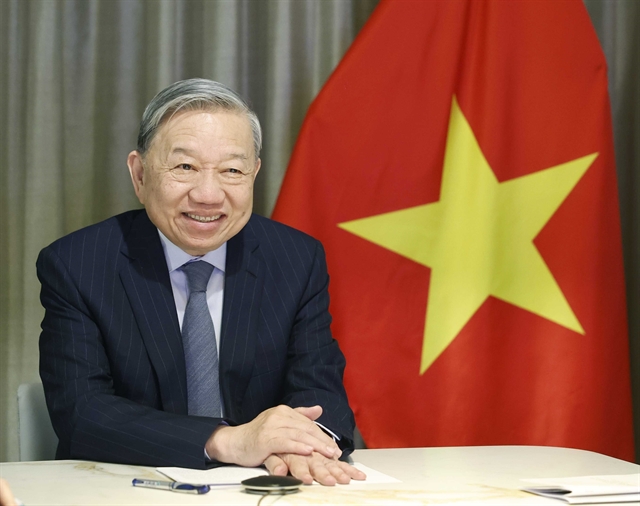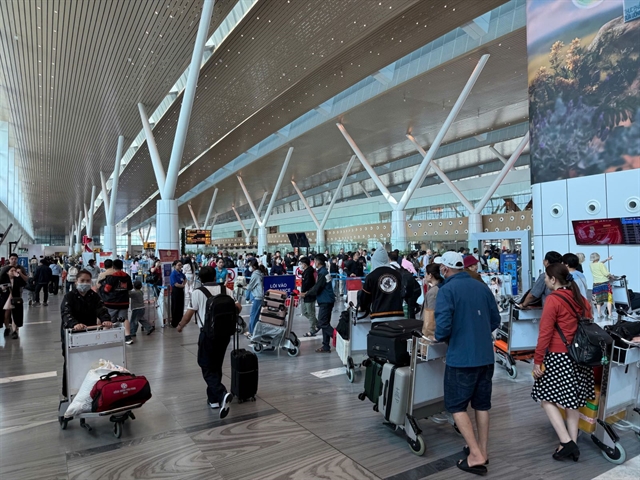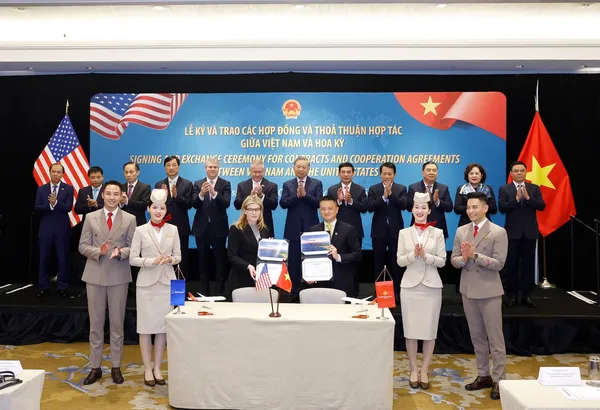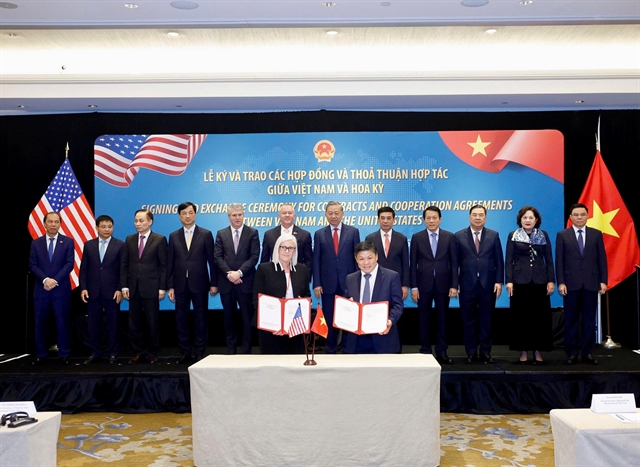 Economy
Economy
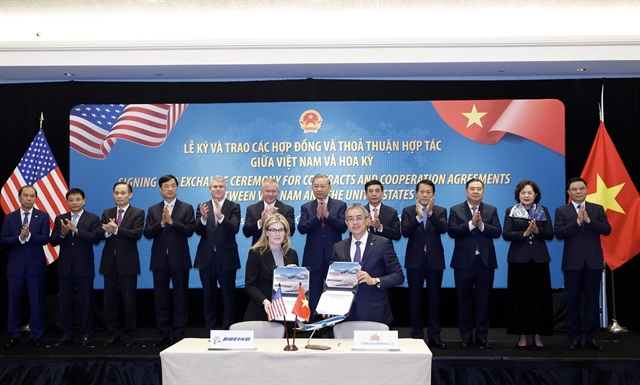
Ly Ly Cao
HÀ NỘI — Thanks to support from local authorities and recently signed free trade agreements (FTAs), export activities of Hòa Bình Province have reported outstanding results post-COVID-19.
In the first ten months of 2022, export turnover was estimated at over US$1.12 billion, an increase of 21.03 per cent over the same period, reaching 82.19 per cent of the year plan, according to official data from Hòa Bình Department of Industry and Trade.
The value is estimated at $1.4 billion this year, exceeding the set plan.
The province's export products are mainly electronic goods, textiles, and products relating to supporting industries.

|
| Phạm Tiến Dũng, director of the Hòa Bình Department of Industry and Trade. VNS Photos Ly Ly Cao |
"After going through difficulties during many COVID-19 outbreaks and social distancing, our enterprises have learned many lessons and built scenarios for specific production and operation, leading to current successes," said Phạm Tiến Dũng, director of the Hòa Bình Department of Industry and Trade.
"At the moment, we have reached our target for the whole year."
New FTAs like the Comprehensive and Progressive Agreement for Trans-Pacific Partnership (CPTPP), European-Vietnam Free Trade Agreement (EVFTA), United Kingdom-Vietnam Free Trade Agreement (UKVFTA) and the Regional Comprehensive Economic Partnership (RCEP), allowed the Vietnamese enterprises in Hòa Bình Province to participate in production value chains, contributing to expanding export markets.
In the last months of the year, global market consumer demand is still expected to grow, creating export momentum for enterprises, according to the head of Hòa Bình Department of Industry and Trade.
FTAs have come into effect, opening up many potential export markets for import-export businesses in the province. However, requirements for goods to meet quality standards are getting stricter.
Fortunately, as foreign direct investment (FDI) enterprises dominate the province's export activities, the impacts of these quality standards are less severe.
There are 63 enterprises in Hòa Bình Province engaged in import and export activities, of which 34 are FDI companies.
"FDI firms contribute a large portion of the province's export value. This is because they have technologies, experience, and strict requirements for orders, making them less exposed to the supply chain disruption," Dũng said.
Nevertheless, to meet international standards, export enterprises in the province still have to import high-tech equipment and production lines to improve product quality and production efficiency, increasing the total export turnover of the whole province.
As a business that specialises in producing lenses that require a high-technology application, R Technical Research Vietnam understands the challenge.
"High-tech equipment consumes a lot of capital, not to mention the requirements of installation and operation of such equipment are also very demanding, such as clean rooms, the stability of the substrate, and the environment," said Dương Thị Chính, deputy director of R Technical Research Vietnam.
"Moreover, replacing spare parts is very expensive. Many items need foreign experts to carry out replacement and maintenance activities."
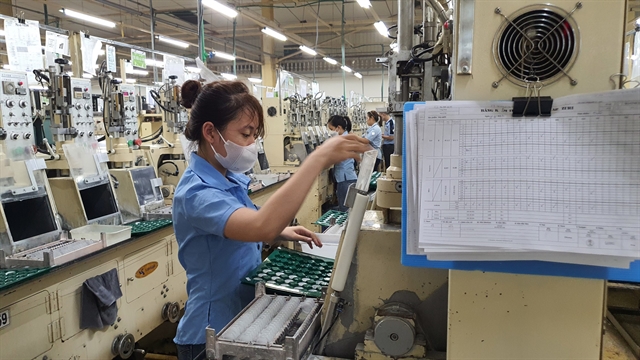
|
| Workers at a factory of R Technical Research Vietnam in Hòa Bình Province. |
Chính added that having a high-quality workforce was another difficulty her company faced.
"To operate machinery and software with high technical content, it is required that employees have certain skills and knowledge to manage and operate machines, but we are located in a small town, so the quality of workers is not in line with high-tech investment activities," Chính said.
Currently, the company has to train unskilled workers, which takes about three years before the recruits are qualified to work, the deputy director of R Technical Research Vietnam said.
Despite the challenges, the 100 per cent Japanese-invested company still decided to operate in the mountainous province due to stable hydropower and support from the local government.
"This explains why there are more FDI enterprises in Hòa Bình Province," Chính said.
In the first ten months of the year, the company exported nearly $12 million of products, up 16.04 per cent year-on-year, according to the company. VNS

